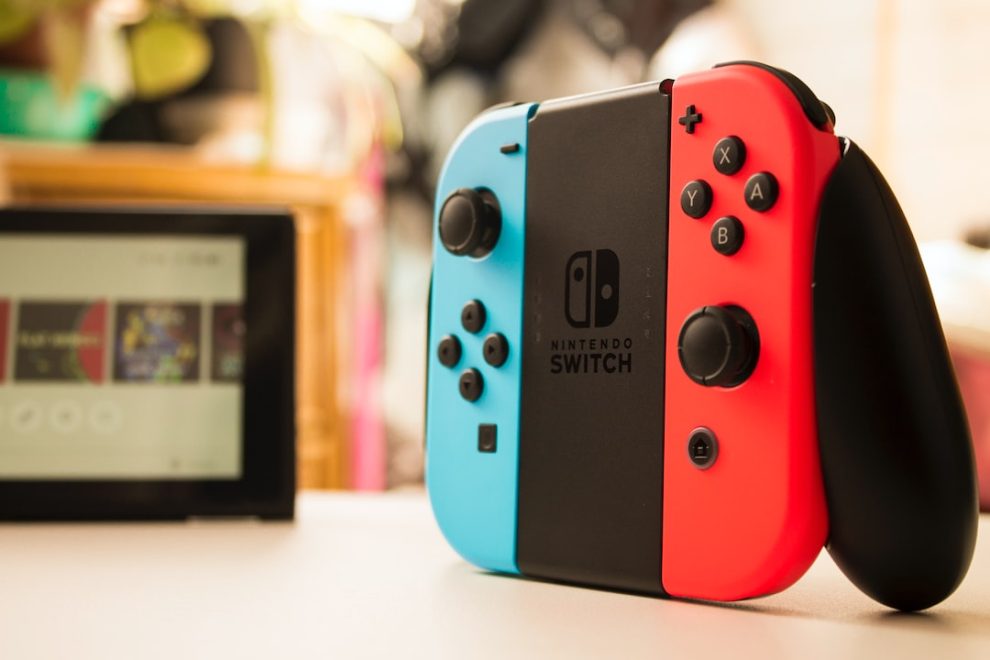Nintendo is a name that is synonymous with the gaming industry. Since its inception in 1889, the company has revolutionized the way we play and experience video games. From its early ventures in the playing card industry to the release of iconic franchises like Super Mario and The Legend of Zelda, Nintendo has consistently pushed the boundaries of what is possible in gaming. With the introduction of consoles like the Nintendo Entertainment System (NES), Game Boy, Wii, and most recently, the Nintendo Switch, the company has cemented its place as one of the most influential and innovative forces in the gaming industry.
The Birth of Nintendo: A Brief History of the Company’s Origins
Nintendo was founded in 1889 by Fusajiro Yamauchi as a playing card company. Originally called Nintendo Koppai, the company quickly gained popularity and became one of Japan’s leading playing card manufacturers. In the 1960s, Nintendo expanded its business into other areas, including toy manufacturing and even a taxi company.
However, it was not until the 1970s that Nintendo made its first foray into the video game industry. In 1977, they released their first home console, the Color TV-Game series. These consoles were simple and affordable, making them accessible to a wide audience. This marked the beginning of Nintendo’s journey into electronic toys and video games.
From Donkey Kong to Super Mario: Nintendo’s Early Successes
One of Nintendo’s earliest successes came with the release of Donkey Kong in 1981. Developed by Shigeru Miyamoto, Donkey Kong introduced players to a new type of gameplay that combined platforming and puzzle-solving. The game was a massive hit and helped establish Nintendo as a major player in the arcade game industry.
Donkey Kong also introduced players to a character who would become one of Nintendo’s most iconic mascots: Mario. Originally known as Jumpman, Mario quickly became a beloved character and the face of Nintendo. His popularity led to the release of the Super Mario Bros. series, which became one of the best-selling video game franchises of all time.
Nintendo’s success in the arcade game industry continued with hits like Mario Bros., Donkey Kong Jr., and Punch-Out!!. These games not only showcased Nintendo’s ability to create innovative and engaging gameplay experiences but also solidified their reputation as a leading force in the gaming industry.
The Nintendo Entertainment System (NES): How It Changed the Gaming Industry
In 1985, Nintendo released the Nintendo Entertainment System (NES), a home console that would revolutionize the gaming industry. The NES introduced a number of groundbreaking features, including a unique controller design, improved graphics and sound capabilities, and a wide range of games.
The NES had a profound impact on the gaming industry. It helped revive the video game market after the crash of 1983 and introduced millions of people to the world of gaming. The success of the NES also paved the way for future consoles, as it demonstrated that home gaming could be both accessible and profitable.
Some of the most popular games for the NES included Super Mario Bros., The Legend of Zelda, Metroid, and Mega Man. These games not only showcased Nintendo’s ability to create immersive and engaging experiences but also set the standard for future games in their respective genres.
The Legend of Zelda: A Game-Changing Franchise
One of Nintendo’s most influential franchises is The Legend of Zelda. First released in 1986, The Legend of Zelda introduced players to an open-world adventure game that was unlike anything they had ever seen before. The game featured a vast, interconnected world filled with secrets to discover and puzzles to solve.
The success of The Legend of Zelda had a profound impact on the gaming industry. It popularized the concept of open-world exploration and inspired countless other games in the years that followed. The franchise has since become one of Nintendo’s most beloved and successful, with numerous sequels and spin-offs released over the years.
The Legend of Zelda also showcased Nintendo’s ability to create immersive and memorable gaming experiences. The game’s intricate puzzles, memorable characters, and epic storytelling set a new standard for what was possible in video games.
The Rise of Handheld Gaming: Nintendo’s Game Boy and DS

In addition to their success in the home console market, Nintendo also made a significant impact on the handheld gaming industry. In 1989, they released the Game Boy, a portable gaming device that would go on to become one of the best-selling consoles of all time.
The Game Boy’s success was due in large part to its library of games, which included classics like Tetris, Super Mario Land, and The Legend of Zelda: Link’s Awakening. These games showcased Nintendo’s ability to create compelling experiences on a portable device and helped solidify the Game Boy as a must-have gadget for gamers.
Nintendo continued their dominance in the handheld gaming market with the release of the Nintendo DS in 2004. The DS introduced innovative features like dual screens, touch controls, and wireless connectivity, which opened up new possibilities for gameplay. The console was a massive success, selling over 150 million units worldwide.
Wii: A Revolutionary Console that Redefined Gaming
In 2006, Nintendo released the Wii, a console that would revolutionize the gaming industry once again. The Wii introduced motion controls, allowing players to interact with games in a whole new way. This innovative approach to gaming appealed to a wide audience and helped bring gaming into the mainstream.
The Wii’s unique features and accessibility made it a hit with casual gamers and non-gamers alike. It also introduced a number of popular franchises like Wii Sports and Wii Fit, which further expanded the console’s appeal.
The success of the Wii had a profound impact on the gaming industry. It showed that there was a market for innovative and accessible gaming experiences and inspired other companies to explore new ways of interacting with games. The Wii also helped Nintendo regain its position as a leading force in the gaming industry, after facing stiff competition from rivals like Sony and Microsoft.
Nintendo Switch: The Future of Gaming
In 2017, Nintendo released the Nintendo Switch, a hybrid console that can be played both as a home console and a portable handheld device. The Switch introduced a number of innovative features, including detachable controllers, a touchscreen display, and the ability to seamlessly transition between playing on a TV and playing on the go.
The Nintendo Switch has been a massive success, selling over 84 million units worldwide as of March 2021. Its unique design and versatile gameplay options have resonated with gamers, making it one of the most popular consoles on the market.
The Switch’s success has also had a significant impact on the gaming industry. It has shown that there is still a demand for dedicated gaming devices, despite the rise of mobile gaming. The console’s success has also inspired other companies to explore hybrid gaming devices, further pushing the boundaries of what is possible in gaming.
The Impact of Nintendo on Pop Culture and Society
Nintendo’s influence extends beyond the gaming industry and has had a significant impact on pop culture and society as a whole. The company’s iconic characters like Mario, Link, and Pikachu have become cultural icons, recognized by people all over the world.
Nintendo’s games have also inspired countless works of art, music, and literature. From fan art to orchestral performances of video game music, Nintendo’s influence can be seen in various forms of media.
Nintendo has also made an impact on society through its commitment to accessibility and inclusivity. The company has been praised for its efforts to make gaming more accessible to people with disabilities, as well as its commitment to diversity and representation in its games.
Nintendo’s Innovations in Virtual Reality and Augmented Reality
In recent years, Nintendo has been at the forefront of virtual reality (VR) and augmented reality (AR) technologies. The company has released several VR and AR experiences for the Nintendo Switch, including the Labo VR Kit and the Pokémon Go Plus device.
Nintendo’s approach to VR and AR is unique in that it focuses on creating immersive and interactive experiences that are accessible to a wide audience. The Labo VR Kit, for example, allows players to build their own VR headset using cardboard and play a variety of VR games.
While VR and AR are still relatively new technologies, Nintendo’s innovations in this space have the potential to shape the future of gaming. By making these technologies more accessible and affordable, Nintendo is helping to bring immersive gaming experiences to a wider audience.
The Future of Nintendo: What’s Next for the Gaming Giant?
As for what’s next for Nintendo, the possibilities are endless. The company has a long history of innovation and has consistently pushed the boundaries of what is possible in gaming. With the success of the Nintendo Switch and its continued commitment to creating unique and engaging gaming experiences, it is clear that Nintendo will continue to be a major player in the industry.
One potential future venture for Nintendo is the expansion into new markets, such as virtual reality or streaming services. The company has already made strides in these areas with its VR and AR experiences for the Switch, as well as its partnership with streaming platform Twitch.
Another potential future venture for Nintendo is the continued development of its existing franchises. The company has a number of beloved franchises like Super Mario, The Legend of Zelda, and Pokémon, which have been around for decades. By continuing to innovate and evolve these franchises, Nintendo can ensure that they remain relevant and appealing to new generations of gamers.
In conclusion, Nintendo’s impact on the gaming industry cannot be overstated. From its early ventures in the playing card industry to the release of iconic franchises like Super Mario and The Legend of Zelda, Nintendo has consistently pushed the boundaries of what is possible in gaming. With innovative consoles like the NES, Game Boy, Wii, and Nintendo Switch, the company has revolutionized the way we play and experience video games.
Nintendo’s influence extends beyond the gaming industry and has had a significant impact on pop culture and society as a whole. The company’s iconic characters and games have become cultural icons, recognized by people all over the world. Nintendo’s commitment to accessibility and inclusivity has also made gaming more accessible to a wider audience.
As for the future of Nintendo, the possibilities are endless. The company has a long history of innovation and is constantly pushing the boundaries of what is possible in gaming. Whether it’s through new technologies like VR and AR or the continued development of its existing franchises, Nintendo will undoubtedly continue to be a major player in the gaming industry for years to come.
















Add Comment